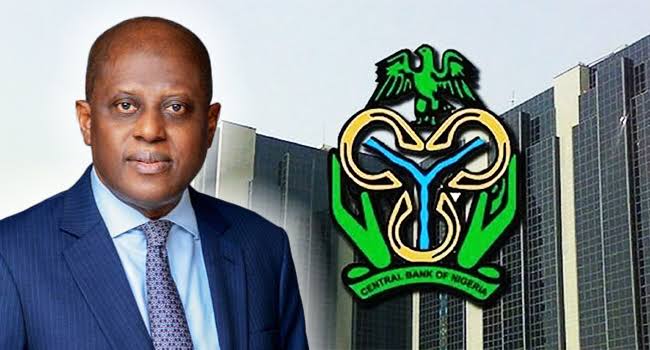The Central Bank of Nigeria (CBN) has warned of a significant surge in financial fraud across the country, revealing that reported fraud cases rose by 45% within one year, with over 70% of the losses traced to digital financial channels, particularly unregulated virtual asset platforms.
CBN Governor Olayemi Cardoso, represented by Deputy Governor for Economic Policy Muhammad Sani Abdullahi, disclosed this on Thursday, July 10, 2025, during a public lecture organized by the Economic and Financial Crimes Commission (EFCC) in Abuja. The event focused on the growing threat of financial crimes and the role of national institutions in responding to them.
Quoting findings from the CBN Financial Stability Report 2024, Cardoso said the data showed not only a disturbing rise in fraud but also the vulnerability of Nigeria’s digital financial space to manipulation by bad actors.
“The CBN Financial Stability Report 2024 reveals a 45% surge in financial fraud cases, with 70% of losses linked to digital channels, including unregulated virtual asset platforms. Furthermore, over 30 Ponzi-style investment schemes exploiting digital currency narratives have been flagged by the SEC and other agencies,” he said.
Cardoso added that these incidents are eroding consumer trust, damaging Nigeria’s financial reputation globally, and threatening the stability of the financial system.
“These developments pose major risks, including loss of consumer confidence, weakening of financial integrity, and reputational challenges for Nigeria in the global financial system.”
According to the CBN, Nigeria recorded over $56 billion in crypto-related transactions between July 2022 and June 2023, solidifying its place as Africa’s leading digital transaction hub. However, Cardoso said this rapid growth in digital financial activity has not come without consequences.
While digital innovation has improved financial access, it has also introduced regulatory and security challenges, particularly in monitoring transactions involving cryptocurrencies and tokenized investments.
“The surge in digital innovation has brought benefits, such as greater financial inclusion and also given rise to complex challenges, such as fraud and money laundering,” Cardoso said.
The Director General of the Securities and Exchange Commission (SEC), Emomotiti Agama, also weighed in, highlighting how virtual asset fraud and investment scams are undermining investor trust and damaging financial market credibility.
“Today, as digital innovation transforms financial systems, we face new challenges, particularly the rise of virtual asset fraud and sophisticated investment scams, exploiting unsuspecting investors,” Agama said.
He emphasized that corruption and financial fraud are siphoning resources needed for long-term development and deterring both domestic and international investment.
Agama stressed that the SEC is stepping up efforts to revise its regulatory frameworks to reflect the evolving risks posed by digital investment channels. He also said the Commission is working on educating the public, particularly vulnerable groups, on how to identify and avoid fraudulent schemes.
Director General of the National Orientation Agency (NOA), Lanre Issa-Onilu, said the consequences of financial fraud are not just fiscal, but deeply human. He argued that the ripple effects of fraud can be seen in ruined livelihoods and the collapse of small businesses.
“Every Naira lost to fraud causes far-reaching effects. It is about a child pulled out of school, a livelihood ruined, and an enterprise destroyed. These crimes are not abstract. They affect people, and our country pays dearly for it.”
He linked the fraud epidemic to a cultural problem, where the pursuit of sudden wealth has become normalized.
“We launched a nationwide campaign against the spread of the get-rich-quick syndrome. The initiative is helping all Nigerians, especially young people, to understand that lasting success comes from honesty and hard work, and it takes time.”
Also speaking at the event, Registrar General of the Corporate Affairs Commission (CAC), Hussaini Ishaq Magaji, warned that the proliferation of fraud, money laundering, and financial manipulation demands proactive regulatory vigilance.
He disclosed that the CAC is in active collaboration with the SEC and other regulatory bodies to tighten corporate governance and improve enforcement across sectors. According to Magaji, transparency and accountability must be enforced at all levels of Nigeria’s financial ecosystem to shield it from criminal exploitation.
“We are aligning with sector-specific regulators to strengthen governance frameworks and ensure that all institutions within the ecosystem operate within the boundaries of legality and integrity.”
The CBN’s latest warning comes as Nigeria grapples with the dual realities of becoming a digital finance leader on the continent while also facing unprecedented exposure to online financial crime. The surge in crypto activity, unregulated platforms, and fraudulent investment schemes has complicated the regulatory environment, raising questions about how to foster innovation without sacrificing security.
The alarm from the CBN and other institutions suggests that Nigeria’s economic future hinges not just on policy reforms or market access, but on winning back public confidence in the financial system — a task that will require strong regulation, public education, and a national value reorientation away from financial opportunism and towards ethical growth.
